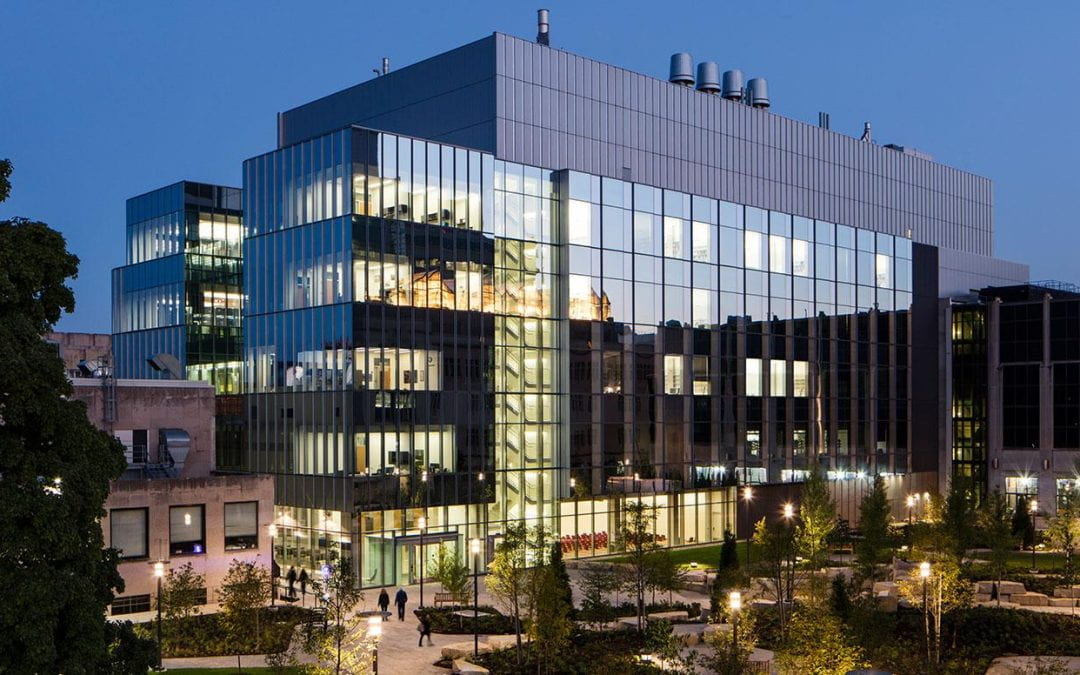Artificial intelligence has the power to fuel countless innovations, giving scientists and engineers new tools to solve the world’s biggest problems.
At the University of Chicago, the Joint Task Force Initiative (JTFI) has supported these innovations by helping the Department of Energy’s Fermi National Accelerator Laboratory and Argonne National Laboratory achieve success and collaborate across institutions.
Importantly, JFTI has invested in UChicago’s AI + Science initiative, laying the groundwork for AI collaborations by organizing strategic matchmaking workshops between AI and other fields, providing students with research and consulting experiences, and seeding joint projects in strategic AI areas.
Now, these early investments have helped pave the way for a new University of Chicago initiative that will train the next generation of scientists to harness the power of AI.
The Eric and Wendy Schmidt AI in Science Postdoctoral Fellowship, a program of Schmidt Futures, launched in January and will fund more than 50 postdoctoral researchers conducting research at the intersection of AI and science and engineering at UChicago and its affiliated laboratories over the next five years.
The fellowships, part of larger $148 million initiative awarded to nine universities around the world, expands upon JTFI’s investment and supports the AI + Science community, which includes UChicago Data Science Institute, Argonne National Laboratory, Fermi National Accelerator Laboratory and the Marine Biological Laboratory.
“The JTFI investment in AI + Science and our partnerships with the labs were major factors in UChicago’s selection for this prestigious initiative,” said Rebecca Willett, professor in the Departments of Computer Science and Statistics, and faculty lead of the new fellowship program. “This is a success story for the JTFI, where the initial investment had a huge long-term impact. That shows the power of encouraging collaborations, recognizing potential, and providing seed funding to facilitate early-stage research and projects.”
Each Schmidt fellow will work with both a researcher from their field and an AI expert. Though fellows are hired by the university, they can be mentored by researchers at these affiliated laboratories.
“We know that AI has the potential to fundamentally change both how we conduct research and the pace at which we see results,” said Alex Drlica-Wagner, Fermilab scientist and assistant professor in the Department of Astronomy and Astrophysics who works with the program. “JTFI has helped give researchers the resources to consider these implications, and now programs like this fellowship will help train a new generation of investigators to not only think in this new way, but to be able to reach across disciplines to achieve results. Having strong connections to mentors in the laboratories is key to this endeavor.”
Many applicants to the fellowship explicitly mentioned working on projects directly related to the laboratories. The JTFI is also working to develop training activities and other events that will both help the postdocs and also reinforce the larger AI + Science community among UChicago and the labs.
“We must completely reimagine what role AI plays in the scientific process while also deeply considering its implications,” said Ian Foster, division director and distinguished fellow at Argonne who works with the program. “JTFI has already paved the way for collaborating across disciplines to consider these issues in AI, and this new fellowship will only strengthen those collaborations, leading to new synergies and a whole new generation of thinkers.”
“Researchers and scholars at UChicago and the laboratories have shown that their ability to be rigorous, theory-driven, and interdisciplinary results in fantastic new avenues for research,” said Abhishek Kumar, CZI Imaging Scientist and an investigator at UChicago-affiliated Marine Biological Laboratory who works with the program. “We look forward to seeing how existing collaborations combine with these new fellows to help create an entirely new AI-enabled scientific revolution.”

